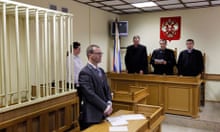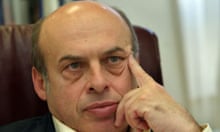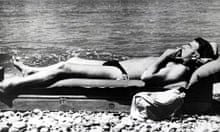Moscow and Washington orchestrated the biggest and least secret spy swap in decades today, a face-saving handover that transferred 10 Russian "sleepers" arrested in America last week to Russia in return for four alleged double agents.
In the less-than-glamorous setting of a sweltering airport tarmac in Vienna, the 14 agents switched planes in a simple but significant hour-long manoeuvre intended to ensure that US-Russian relations were not derailed by the exposure of Russia's deep-cover agents in suburban America. It wasn't quite Checkpoint Charlie or the Glienicke bridge in Berlin, famous for cold war-era spy swaps. But it was Vienna, with its rich history of espionage intrigue, to which can now be added a curious footnote.
Tonight the agents had their first taste of a new life in the country of their sympathy. The Russian 10, deported from New York on Thursday, landed at Domodedovo airport south of Moscow to an uncertain future. The four westward-bound agents touched down at Brize Norton, in Oxfordshire. It is thought that at least one of them, Sergei Skripal, a former informant for MI6, will stay in Britain.
The 10 sleepers were accused of embedding themselves in ordinary American society while leading double lives, complete with false passports, secret code words, fake names, invisible ink and encrypted radio. Three of the couples had children, some of which were left behind in America as they flew to Moscow.
Because they were not high-value assets in Russian foreign intelligence, the deep-cover agents were not expected to get a heroic welcome in Moscow. But Kremlin insiders said they would not be forgotten either, amid reports that they had been offered apartments and up to $2,000 a month in living allowances.
Among the 10 returned to Moscow tonight was Anna Chapman, a 28-year-old former Barclays Bank employee who spent several years working in London. She has reportedly expressed an interest in moving back to London, although her conviction in the US means this is unlikely.
Sergei Markov, a political analyst with close ties to the Kremlin, said he expected the agents returning to Russia would swiftly adapt to their new lives.
"If they had been professional espionage operatives whose cover was blown then they might have been sent to work in closed training establishments run by the intelligence services," he said. "But these were ordinary people recruited as agents. So they will find work in the same professional specialisations as they had in America and live openly without pseudonyms. I'm sure they will continue to get financial support from the SVR [Russia's foreign intelligence service] and usually the state provides apartments and other material help in such cases."
Though one Russian website dubbed today'stransfer "Russia 10 USA 4", western intelligence sources were claiming tonight that Britain and the US got more out of the spy swap than Russia. They said the four men released by Moscow were more serious individuals than the 10 agents handed over by the US. The four had been in jail and poorly treated.
Britain has a direct interest in Skripal, a former Russian army colonel convicted of passing the identities of Russian agents working undercover in Europe to MI6.
Skripal was sentenced in August 2006 to 13 years in jail for spying for Britain. Russian prosecutors said he had been paid $100,000 by MI6 for the information, which he had been supplying since the 1990s when he was a serving officer.
Two others, Alexander Zaporozhsky and Igor Sutyagin, were convicted of spying for the US. The fourth, Gennady Vasilenko, was sentenced to three years on murky charges of illegal weapons possession. Reasons for his involvement in the swap were not immediately clear.
Well-placed British sources said the exchange was also significant because Russia rarely gives up its citizens, as opposed to Americans or other foreigners, whom it has jailed on spying charges.
One reason given for the extreme reticence among British security and intelligence agencies to talk about the exchanges is fear the Russians would make fresh arrests to use more people as potential collateral. It is possible they were already placing potentially vulnerable people under surveillance now, the sources said, and possible targets may have been warned to lie low.
The Russians appear to have agreed to the swap to avoid embarrassing revelations coming out in US courts; the 10 did not appear to have accomplished anything major during their years in America. Moscow also wanted to minimise the impact on recently "reset" US-Russian relations.
"The exchange in Vienna will have a positive effect on US-Russian relations," said Markov. "This scandal resembles a US-France dispute or a disagreement between American and Japan rather than a US-Soviet standoff."





